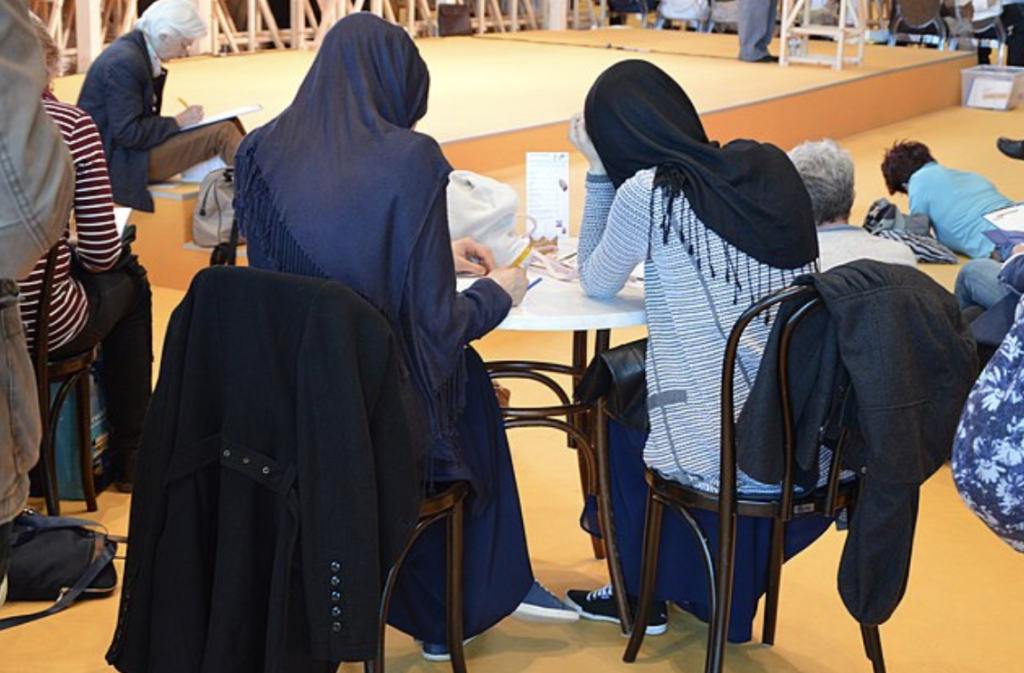A Balance Between Tradition and Ambition: The Evolving Role of Arab Women

By: Raisa Sami / Arab America Contributing Writer
Arab women are gaining access to public life through workforce nationalization policies in the Arab Gulf countries, aiming to reduce dependency on migrant labor. Saudi Arabia aims for 30% female labor participation by 2030, while Kuwait has female citizens outnumbering male citizens in the workforce and higher education enrollment. Women are also making political inroads in the region, with four women appointed to ministerial positions since 2003 and eleven women holding cabinet positions since 2005.
Even Saudi Arabia has reformed the guardianship system, allowing women to obtain passports, travel abroad, and register marriages and births on their own. These changes give Arab women greater economic independence and a voice in domestic and international affairs. However, Arab Muslim women in the Middle East still face social and legal inequalities, as traditional gender roles are still enforced at home.
Islamic Identity of Women
The Arab Gulf’s oil discovery in the 1930s led Western leaders to pressure the region to modernize its laws and customs. Gulf rulers can present a positive international image by championing women’s advancement, maintaining good political, military, and trade relationships with Europe and the US, and allaying criticisms of human rights violations. Arab Gulf women have fought for their rights, such as the right to drive granted in 2018 in Saudi Arabia and better protections against domestic violence in Kuwait.
However, conservative citizens and influential religious leaders still need support to manage tensions and promote Quranic interpretations that relegate women to traditional roles like bearing and raising children and caring for their families. Celebrating women’s domesticity signals their government’s commitment to Islamic values. Qatar, for example, has maintained its cultural and traditional values as an Arab and Islamic nation, with women playing an indispensable role in upholding traditional familial and cultural values through language, codes of ethics, behavioral patterns, value systems, and religious beliefs.
Roles of Gender and Religion
The Quran does not require repression of women, but male leaders in the Gulf have historically associated patriarchal gender roles with religious purity. Clerics, with significant social and political influence, enforce conservative Islamic law that subordinates women. For example, women in all Gulf states must have the approval of a male guardian to marry, and single women under 25 require permission to travel abroad. Men can also file “disobedience” complaints against female relatives for leaving the house without permission. In Qatar, Kuwait, and Bahrain, men can stop their wives from working if it interferes with domestic responsibilities or religious conduct.
What Women Want in Balancing Tradition and Ambition
Qatari women face challenges in balancing domestic responsibilities and professional opportunities. Sheikha, an academic adviser in her late 20s, questions the necessity of marriage despite her job and plans. Sheikha acknowledges that marriage may not erase dreams, but family commitment can sometimes hinder her ability to pursue her education and career goals. Social pressures also pressure women to settle down and have children of certain ages while ensuring their education and career goals don’t interfere with domestic responsibilities. Some women, like Amina Al-Ansari, hold conservative views on marriage and family, believing it is a woman’s religious duty to care for the family before starting work.
Conservatism vs. Progress
Conservative Qataris view women working or studying in gender-mixed environments as a violation of Islamic values and a sign of Westernization. Amal Al-Shammari, a 32-year-old Qatari who runs Embrace Doha, attended Qatar University, the country’s only gender-segregated university, to maintain a good reputation. As political and religious leaders in the Gulf push their national agendas, women must find ways to balance newfound freedoms with existing social and religious pressures. Professor Al-Ansari explains that while development and improvement are always present, tradition, religion, and culture also play a significant role in balancing these tensions.
Click here to visit our BLOG









